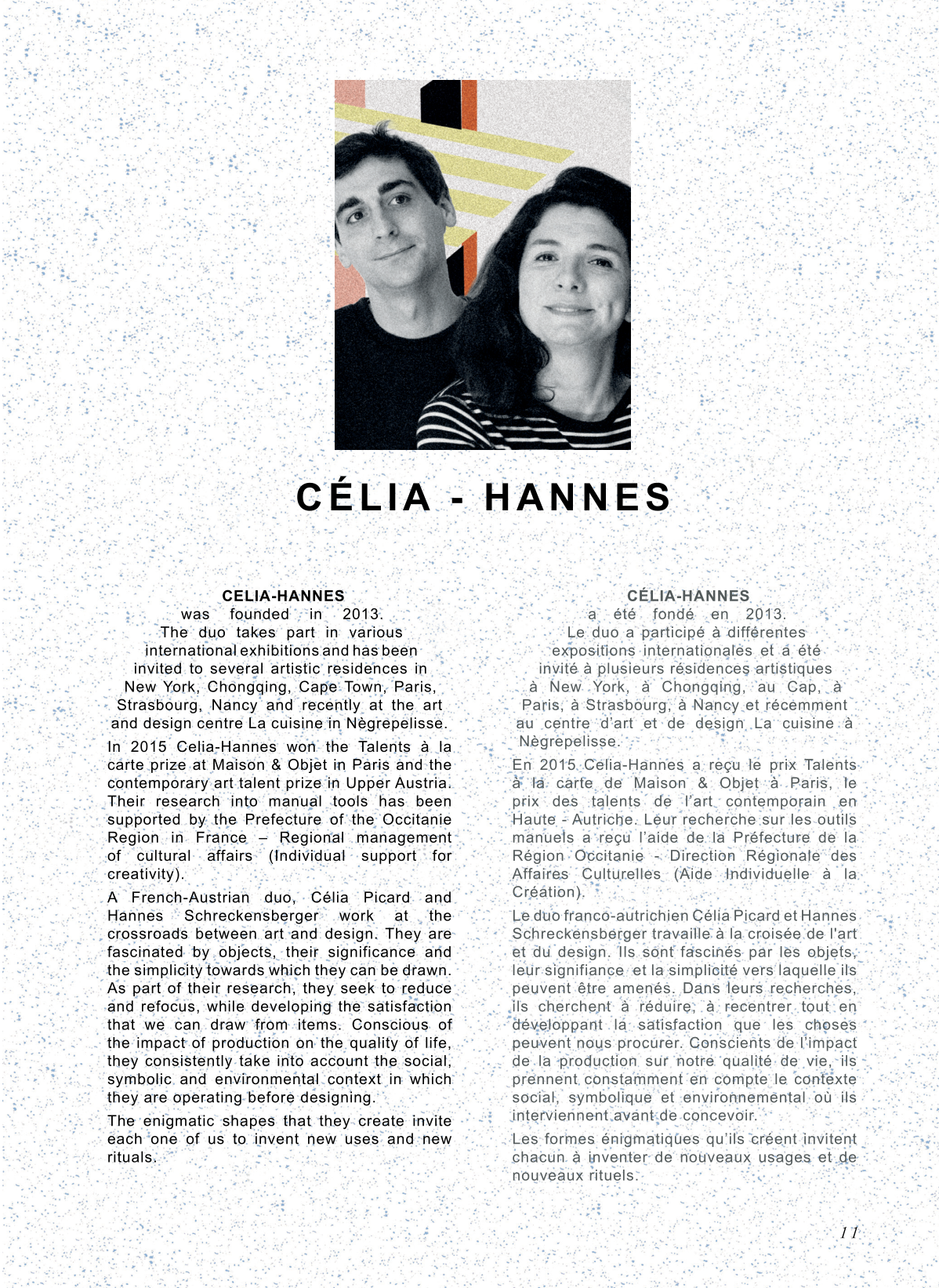CÉLIA - HANNES
CELIA-HANNES
was
founded
in
2013.
The duo takes part in various
international exhibitions and has been
invited to several artistic residences in
New York, Chongqing, Cape Town, Paris,
Strasbourg, Nancy and recently at the art
and design centre La cuisine in Nègrepelisse.
In 2015 Celia-Hannes won the Talents à la
carte prize at Maison & Objet in Paris and the
contemporary art talent prize in Upper Austria.
Their research into manual tools has been
supported by the Prefecture of the Occitanie
Region in France – Regional management
of cultural affairs (Individual support for
creativity).
A French-Austrian duo, Célia Picard and
Hannes
Schreckensberger
work
at
the
crossroads between art and design. They are
fascinated by objects, their significance and
the simplicity towards which they can be drawn.
As part of their research, they seek to reduce
and refocus, while developing the satisfaction
that we can draw from items. Conscious of
the impact of production on the quality of life,
they consistently take into account the social,
symbolic and environmental context in which
they are operating before designing.
The enigmatic shapes that they create invite
each one of us to invent new uses and new
rituals.
CÉLIA-HANNES
a
été
fondé
en
2013.
Le duo a participé à différentes
expositions internationales et a été
invité à plusieurs résidences artistiques
à New York, à Chongqing, au Cap, à
Paris, à Strasbourg, à Nancy et récemment
au centre d’art et de design La cuisine à
Nègrepelisse.
En 2015 Celia-Hannes a reçu le prix Talents
à la carte de Maison & Objet à Paris, le
prix des talents de l’art contemporain en
Haute - Autriche. Leur recherche sur les outils
manuels a reçu l’aide de la Préfecture de la
Région Occitanie - Direction Régionale des
Affaires Culturelles (Aide Individuelle à la
Création).
Le duo franco-autrichien Célia Picard et Hannes
Schreckensberger travaille à la croisée de l'art
et du design. Ils sont fascinés par les objets,
leur signifiance et la simplicité vers laquelle ils
peuvent être amenés. Dans leurs recherches,
ils cherchent à réduire, à recentrer tout en
développant la satisfaction que les choses
peuvent nous procurer. Conscients de l’impact
de la production sur notre qualité de vie, ils
prennent constamment en compte le contexte
social, symbolique et environnemental où ils
interviennent avant de concevoir.
Les formes énigmatiques qu’ils créent invitent
chacun à inventer de nouveaux usages et de
nouveaux rituels.
11


